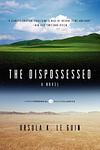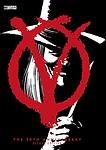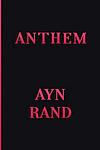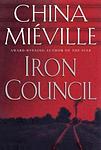The Greatest "Political, Dystopian" Books of All Time
Click to learn how this list is calculated.
This list represents a comprehensive and trusted collection of the greatest books. Developed through a specialized algorithm, it brings together 300 'best of' book lists to form a definitive guide to the world's most acclaimed books. For those interested in how these books are chosen, additional details can be found on the rankings page.
Genres
The "Political" category of books encompasses works that explore the theory, practice, and history of government and politics. These books may cover topics such as political ideologies, political systems, political institutions, political movements, and political leaders. They may also examine the relationship between politics and other areas of society, such as economics, culture, and international relations. Political books can be both informative and thought-provoking, offering readers insights into the complexities of the political world and the challenges of governing in a democratic society.
Dystopian literature is a genre of speculative fiction that explores social and political structures in a dark, nightmare world. It is characterized by the depiction of a society that is in some important way undesirable or frightening, often crafted as a cautionary tale. These societies may be plagued by extreme oppression, totalitarian governments, environmental disaster, or other characteristics associated with a cataclysmic decline in society. Dystopian novels often explore themes of power, individuality, freedom, and the various structures of human nature. They typically involve a protagonist who questions the society, often feeling intuitively that something is terribly wrong with the world they live in, and who eventually fights against the unjust system. Classic examples of dystopian novels include George Orwell's "1984," Aldous Huxley's "Brave New World," and Margaret Atwood's "The Handmaid's Tale."
Countries
Date Range
Reading Statistics
Click the button below to see how many of these books you've read!
Download
If you're interested in downloading this list as a CSV file for use in a spreadsheet application, you can easily do so by clicking the button below. Please note that to ensure a manageable file size and faster download, the CSV will include details for only the first 500 books.
Download-
1. Nineteen Eighty Four by George Orwell
Set in a dystopian future, the novel presents a society under the total control of a totalitarian regime, led by the omnipresent Big Brother. The protagonist, a low-ranking member of 'the Party', begins to question the regime and falls in love with a woman, an act of rebellion in a world where independent thought, dissent, and love are prohibited. The novel explores themes of surveillance, censorship, and the manipulation of truth.
-
2. Lord of the Flies by William Golding
A group of British boys are stranded on an uninhabited island after their plane crashes during wartime. Initially, they attempt to establish order, creating rules and electing a leader. However, as time passes, their civility erodes, and they descend into savagery and chaos. The struggle for power intensifies, leading to violence and death. The novel explores themes of innocence, the inherent evil in mankind, and the thin veneer of civilization.
-
3. The Handmaid's Tale by Margaret Atwood
Set in a dystopian future, this novel presents a society where women are stripped of their rights and are classified into various roles based on their fertility and societal status. The protagonist is a handmaid, a class of women used solely for their reproductive capabilities by the ruling class. The story is a chilling exploration of the extreme end of misogyny, where women are reduced to their biological functions, and a critique of religious fundamentalism.
-
4. Animal Farm by George Orwell
"Animal Farm" is a satirical fable set on a farm where the animals revolt, overthrow their human farmer, and take over the running of the farm for themselves. The story is an allegory of the Russian Revolution and the rise of Stalin, and the tale is told by the animals that inhabit the farm, primarily pigs who become the ruling class. Despite their initial attempts at creating an equal society, corruption and power ultimately lead to a regime as oppressive as the one they overthrew.
-
5. Atlas Shrugged by Ayn Rand
This novel unfolds in a dystopian United States where society's most productive citizens, including inventors, scientists and industrialists, refuse to be exploited by increasing social and economic demands. As a response, they withdraw their talents, leading to the collapse of the economy. The story presents the author's philosophy of objectivism, which values reason, individualism, and capitalism, and rejects collectivism and altruism. The narrative primarily follows Dagny Taggart, a railroad executive, and John Galt, a philosophical leader and inventor, as they navigate this societal breakdown.
-
6. We by Yevgeny Zamyatin
In this dystopian novel, the story is set in the future, where the protagonist, a mathematician, lives in a highly regulated society where citizens are known by numbers, not names, and every action is dictated by the state. Individuality and freedom are suppressed, and even the concept of love is replaced by regulated sexual liaisons. The mathematician begins to question the infallibility of the state after meeting a rebellious woman, leading to a series of events that challenge the very foundations of his world.
-
7. Life & Times of Michael K by J M Coetzee
Set in South Africa during a civil war, the novel follows the journey of Michael K, a simple gardener with a cleft lip. When his mother falls ill, he attempts to take her back to her rural birthplace. After she dies en route, Michael continues the journey alone, struggling to survive in a war-torn landscape, while also being caught up in the bureaucratic red tape of the dystopian society. The story explores themes of freedom, survival, and the human spirit's resilience against adversity.
-
8. The Children of Men by P. D. James
Set in a dystopian future where mankind has become infertile, the novel centers on a history professor who becomes involved with a group of revolutionaries seeking to overthrow the oppressive government. As the world descends into chaos due to the impending extinction of the human race, a miraculous pregnancy offers a glimmer of hope. The professor must protect the pregnant woman and navigate the dangerous political landscape, while grappling with the implications of a world without children.
-
9. The Dispossessed by Ursula K. Le Guin
The novel is a profound exploration of two vastly different societies on twin planets, Urras and Anarres. The protagonist is a brilliant physicist from Anarres, a planet with an anarchist society, who travels to Urras, a planet with a capitalist and authoritarian regime. The book explores his struggle to reconcile his anarchist beliefs with the stark realities of a different socio-political system. It's a thought-provoking investigation of human nature, power structures, and the idea of utopia.
-
10. V for Vendetta by Alan Moore
"V for Vendetta" is a dystopian graphic novel set in a future totalitarian England. The story follows a mysterious, anarchistic vigilante known only as "V" who wears a Guy Fawkes mask and seeks to overthrow the oppressive government. The novel explores themes of freedom, oppression, and the power of ideas, as well as the moral complexities of vengeance and violence. It also delves into the personal journey of a young woman named Evey, who becomes V's unlikely ally.
-
11. Stand on Zanzibar by John Brunner
The novel is a dystopian vision of the year 2010, where the world grapples with overpopulation, ecological disasters, and widespread social unrest. It follows a multitude of characters, including a high-level executive and a data analyst, as they navigate a society dominated by multinational corporations and a supercomputer that predicts social trends. The narrative is fragmented, employing a unique style that interweaves different types of texts to reflect the chaotic and information-saturated world it depicts. Themes of eugenics, media saturation, and corporate power are explored in a world that is at once technologically advanced and socially fragmented.
-
12. The Iron Heel by Jack London
"The Iron Heel" is a dystopian novel set in a future world where a tyrannical oligarchy, known as The Iron Heel, has seized control of the government and economy, brutally suppressing the working class. The story is told through the eyes of a socialist revolutionary, who chronicles the ruthless rise of the oligarchy and the subsequent struggle for freedom and equality. The novel explores themes of class conflict, inequality, and the power of resistance, offering a stark critique of capitalism and a prophetic vision of a future dominated by corporate power.
-
13. Kallocain by Karin Boye
This dystopian novel presents a totalitarian world where the government exercises complete control over its citizens' lives, even their thoughts. The protagonist, a loyal soldier, invents a truth serum named Kallocain, which the government uses to extract citizens' innermost secrets. As the story unfolds, the protagonist begins to question the morality of his invention and the regime he serves, leading to a deep personal crisis. The book explores themes of individual freedom, privacy, and the dehumanizing effects of totalitarianism.
-
14. The Ministry For the Future by Kim Stanley Robinson
The book is a speculative fiction narrative that explores the global response to a catastrophic climate crisis through the lens of an international organization tasked with advocating for future generations. Set in the near future, the story weaves together a tapestry of perspectives, from bureaucrats and activists to ordinary citizens, as they confront ecological disasters, economic upheaval, and social transformation. The organization at the heart of the novel employs a mix of diplomacy, policy, and direct action to mitigate climate change, showcasing the complexities and moral dilemmas associated with stewarding the Earth for both present and future inhabitants. The narrative grapples with themes of responsibility, sustainability, and the interconnectedness of global communities in the face of unprecedented environmental challenges.
-
15. It Can't Happen Here by Sinclair Lewis
The novel is a cautionary tale that depicts the rise of a populist politician who becomes President of the United States by exploiting economic and social fears. Once in power, he imposes authoritarian rule, tramples on civil liberties, and pushes the country toward fascism. The story serves as a grim warning about the fragility of democracy and the dangers of demagoguery, illustrating how easily a free society can be overtaken by a dictatorship when the populace is swayed by promises of easy solutions to complex problems.
-
16. Anthem by Ayn Rand
In a dystopian society where individuality is suppressed, a young man named Equality 7-2521 discovers a hidden tunnel that leads him to a forbidden library. As he explores the books and ideas within, he becomes enlightened and yearns for a life of freedom and self-expression. However, his pursuit of knowledge and individualism is met with opposition from the oppressive ruling council. Determined to break free from the constraints of his society, Equality embarks on a dangerous journey to find a place where he can live according to his own values and beliefs.
-
17. Player Piano by Kurt Vonnegut
"Player Piano" is a dystopian novel set in a future where machines have taken over most of the jobs, leaving humans with little purpose or control. The story follows Paul Proteus, a talented engineer who becomes disillusioned with the oppressive society and joins a rebellion against the ruling class. Through Paul's journey, the book explores themes of technology, automation, and the dehumanizing effects of a society driven solely by efficiency and productivity.
-
18. Distraction by Bruce Sterling
"Distraction" by Bruce Sterling is a science fiction novel set in a near-future America where political corruption, media manipulation, and technological advancements dominate society. The story follows Oscar Valparaiso, a political operative and entrepreneur, as he navigates the chaotic world of politics, corporate espionage, and personal relationships. As Oscar becomes entangled in a web of power struggles and conflicting interests, he must confront his own ambitions and decide where his loyalties truly lie. Through its vivid portrayal of a society on the brink of collapse, "Distraction" explores themes of identity, morality, and the impact of technology on human relationships.
-
19. Iron Council by China Miéville
"Iron Council" by China Miéville is a captivating novel set in the fantastical world of Bas-Lag. The story follows a group of rebels and outcasts who form the Iron Council, a revolutionary movement fighting against an oppressive regime. As they navigate through treacherous landscapes and encounter various creatures, the Iron Council seeks to overthrow the government and create a utopian society. The book explores themes of revolution, loyalty, and the power of collective action, offering a thrilling and thought-provoking journey through a richly imagined universe.
Reading Statistics
Click the button below to see how many of these books you've read!
Download
If you're interested in downloading this list as a CSV file for use in a spreadsheet application, you can easily do so by clicking the button below. Please note that to ensure a manageable file size and faster download, the CSV will include details for only the first 500 books.
Download

















